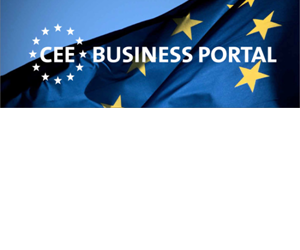British SMEs receiving a helping hand in the UAE
“We have received lots of benefits by coming into the UAE through BCB, as opposed to setting up in a free zone or engaging a sponsor following the typical 49 to 51 per cent model,” says Mr Reynolds. “We received strategically and financially valuable counsel securing our trade licence, plus the ‘plug-in-and-go’ infrastructure from day one, including a desk in a proper office, surrounded by friendly and well-connected people, which has helped.”
The relationship came about by chance, says Neil Reynolds, the international director of Emperor Design. He was at the British Embassy last September deciding whether the free zone route was the right option for his UK marketing and communications agency’s entry into the UAE, when his conversation was overhead.
“It all happened very quickly once we mentioned our plans to someone and the size and profile of our organisation,” says Mr Reynolds of his decision to open the company’s first GCC operation. “Three heads popped up from behind a bookcase down the corridor and we were swiftly greeted by British Centres for Business [BCB] officials – we never looked back.”
Mr Reynolds had stumbled by chance on BCB – then housed at the British Embassy in Deira, Dubai. In 2013, Lord Green, Britain’s minister of state for trade and investment, announced plans to launch two business incubator centres for the UAE in conjunction with Dubai and Abu Dhabi’s departments of economic development.
The idea was to help British SMEs become established in the UAE by offering a year of practical advice, support, sponsor connections and affordable facilities to newly arrived businesses. As it stands the Dubai centre – which gained its trade licence in July 2014 and took on its first client in August last year – is thriving, but Abu Dhabi’s version is currently on hold.
“After meeting the BCB our entire year of planning and paying lawyers to expand our 150-person independent UK agency into the UAE had all been in vain,” says Mr Reynolds. “With BCB we wanted to know the catch, we couldn’t work out what it was and it transpires there wasn’t one – it was all we required and more.”
UK businesses signing up for the package, which costs Dh90,000 for the year but is paid quarterly, have all the processes, licences, advice and annual lease covered for a year. However, this does not include any legal fees encountered. Flexi-desk arrangements (an extra Dh1,500 a month) include meeting rooms and facilities for companies that require an office space.
BCB currently has 14 companies in the incubator and has provided 800 instances of support to UK firms since April last year.
Recently the initiative’s first fledgling training provider, Mary Gober International, flew the nest as the inaugural company completes its incubation year. “It’s a milestone for the BCB having our first client company graduate from the incubator, which is getting closer to our target of 50,” says BCB’s chief executive Joe Hepworth, who estimates that a company going it alone to set up an onshore foreign branch in the UAE would need between Dh200,000 to Dh300,000.
“It is a huge decision for many SMEs in the UK considering expansion to the UAE and it’s our job to ensure they get the very best chance at success if they opt for this route.”
Emperor Design was attracted to the current economic prospects for the UAE, including its upgrade to emerging market status by the MSCI and the potential effect of Expo 2020.
“We have received lots of benefits by coming into the UAE through BCB, as opposed to setting up in a free zone or engaging a sponsor following the typical 49 to 51 per cent model,” says Mr Reynolds. “We received strategically and financially valuable counsel securing our trade licence, plus the ‘plug-in-and-go’ infrastructure from day one, including a desk in a proper office, surrounded by friendly and well-connected people, which has helped.”
Another company gaining from the incubator is Tudor Rose International (TRI), which has been exporting English tea to the GCC for three decades.
The Middle East has always been a large contributor to TRI’s business, to the extent the company decided to branch out and build a base in the UAE to better service the region and achieve the goal of doubling its size in the Middle East and North Africa region within three years.
TRI’s regional director, George Halim, says the networking opportunities offered by BCB removed the hassle of setting up in the region: “They made it their goal to understand our business and managed to connect us with the right people,” he adds.
Both company heads have one gripe in that neither wishes to leave the sanctuary of the incubator any time soon – the rule is that “graduation” needs to happen after a year.
“We are out after 12 months,” says Mr Reynolds. “I believe a couple of years would be better for most entrants, as you’re only just finding your feet before you need to begin thinking about looking for premises.
“It is really much more than an incubator. One thing is getting in to a market and it’s another getting going. Before long no one remembers the visas and the document translations and the waiting and the red tape. They remember the client wins, projects, growth and delivery.”
The article, with images, can be found here





